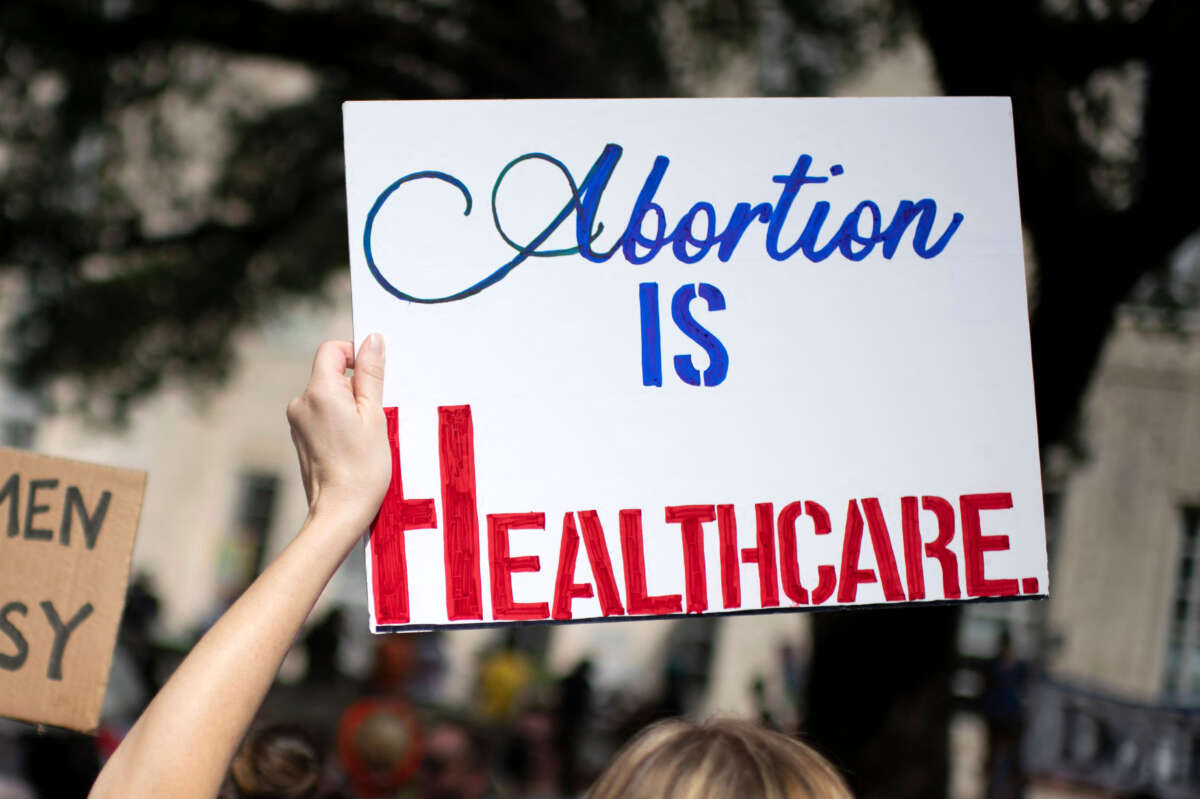Support justice-driven, accurate and transparent news — make a quick donation to Truthout today!
A Texas woman has filed a lawsuit asking the state to grant her an emergency abortion after reportedly learning that her fetus has a terminal disorder and that further carrying the pregnancy may result in debilitating complications, including, potentially, a loss of her fertility or even death.
The lawsuit was filed by the Center for Reproductive Rights on behalf of a 31-year-old woman named Kate Cox, who learned on November 28 that her fetus has a condition known as Trisomy 18. Nearly all Trisomy 18 cases end in miscarriage or stillbirth, and Cox’s health provider has said that it is extremely likely that the fetus will be nonviable even if she were to carry it to term, in which case it would likely live a week at most, the lawsuit says.
The disorder is already manifesting in some ways, the lawsuit says, as ultrasounds have revealed that the fetus likely has an umbilical hernia, a twisted spine, a club foot, growth abnormalities and an irregular skull and heart. Further, Cox’s health would be at risk if she were forced to continue the pregnancy, according to the lawsuit, with risks for diabetes, hypertension, or loss of fertility. Prior to the diagnosis, Cox already had three emergency room visits in relation to the pregnancy.
However, because the fetus still has a heartbeat, Cox has been told that doctors are not allowed to perform an abortion due to state laws.
“Kate Cox needs an abortion, and she needs it now,” the lawsuit says.
“Ms. Cox understands that a dilation and evacuation abortion is the safest option for her health and her best medical option given that she wants to have more children in the future,” it continues. “Yet because of Texas’s abortion bans, Ms. Cox’s physicians have informed her that their ‘hands are tied’ and she will have to wait until her baby dies inside her or carry the pregnancy to term, at which point she will be forced to have a third c-section, only to watch her baby suffer until death.”
The lawsuit asks the court to seek a temporary halt to Texas’s abortion bans for Cox and for her husband, who could be a target of Texas’s vigilante-enforced abortion law. Even though Texas’s abortion ban technically contains exceptions to save the life of a patient or to prevent permanent damage, other patients have reported having their bodies permanently altered by pregnancies in which they were barred from having an abortion.
Cox already has two children, and the lawsuit says that her family has been “devastated” by the diagnosis.
“It is not a matter of if I will have to say goodbye to my baby, but when. I’m trying to do what is best for my baby and myself, but the state of Texas is making us both suffer,” Cox said in a statement. “I do not want to continue the pain and suffering that has plagued this pregnancy. I do not want to put my body through the risks of continuing this pregnancy. I do not want my baby to arrive in this world only to watch her suffer. I need to end my pregnancy now so that I have the best chance for my health and a future pregnancy.”
The day Cox received the diagnosis, the Texas Supreme Court heard arguments in Zurawski v. State of Texas, a landmark case in which 20 women are suing over the state’s abortion ban after being denied abortion care.
The plaintiffs’ stories are harrowing, detailing their stories of getting denied basic reproductive care after being told their fetuses had fatal defects, often posing risks to the patients’ lives. Plaintiffs have testified about having to put their bodies on the line to give birth to a fetus — only to watch it slowly die in their arms just hours later.
Matching Opportunity Extended: Please support Truthout today!
Our end-of-year fundraiser is over, but our donation matching opportunity has been extended! All donations to Truthout will be matched dollar for dollar for a limited time.
Your one-time gift today will be matched immediately. Your monthly donation will be matched for the whole first year, doubling your impact.
This matching gift comes at a critical time. As Trump attempts to silence dissenting voices and oppositional nonprofits, reader support is our best defense against the right-wing agenda.
Help Truthout confront Trump’s fascism in 2026, and have your donation matched now!
